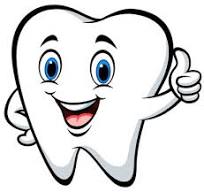Trauma and the Dentist: Why Dental Procedures Can Be So Hard for Survivors
Research shows that persons who have survived repeated trauma often have difficulty with dental procedures.
Trauma and the dentist tend not to get along very well.
Being vulnerable is never easy for a survivor of trauma—but being exposed in a dentist’s chair, surrounded by hygienists, a dentist, and staff (as kind as they may be), can feel deeply uncomfortable for a survivor’s nervous system.
The Nervous System’s Role
Remember the vagus nerve that runs from the brain stem throughout the nervous system? For trauma survivors, the dorsal vagus often “acts up.”
This can look like:
- Dissociation: Feeling numb, zoned out, or “not present.”
- Hyperarousal: Feeling tense, irritable, or even angry when instruments are placed in your mouth.
The amygdala—the brain’s alarm system—scans the environment for threat. In a dental setting, it may sound the alarm even when there is no danger.
The Inner Dialogue
Alongside the nervous system response come the automatic thoughts:
- “I’m such an idiot, why can’t I just relax?!”
- “I feel embarrassed that I’m this nervous—they must think I’m crazy.”
- “I always gag or feel sick at the dentist; something must be wrong with me.”
These thoughts are not character flaws—they’re the natural result of trauma stored in the body.
The Difference a Trauma-Informed Dentist Makes
If you’re fortunate, you’ll find a trauma-informed dentist who understands the nervous system and supports regulation.
I was fortunate enough to find such a dentist. For years I avoided appointments, but with her compassion and skill, I’ve been able to:
- Attend regular 3-month checkups
- Get X-rays completed without gagging
- Receive the treatment I once only dreamed of
This dentist introduced me to EFT (Emotional Freedom Techniques) before beginning procedures and guided me in diaphragmatic breathing to regulate my nervous system.
Practice, Exposure, and Progress
What ultimately helped me was:
- Regular exposure: Returning to the office consistently, even when I didn’t want to.
- Regulation tools: EFT, grounding, and breathing practices.
Together, these created small but significant breakthroughs—what I call mini-miracles.
As my dentist recently said: “It’s been a remarkable journey for you and for us to watch your progress.” Holding back tears, I replied: “I could not have done it without you.”
The Bottom Line
We must practice, practice, practice. Waiting until you “feel like it” won’t work—because fear will always find an excuse.
By regularly practicing exercises that calm the nervous system and showing up despite the discomfort, you can slowly conquer even the deepest fears.
If trauma has made dental care feel impossible, know this: healing and progress are absolutely possible.
.webp)
.svg)




